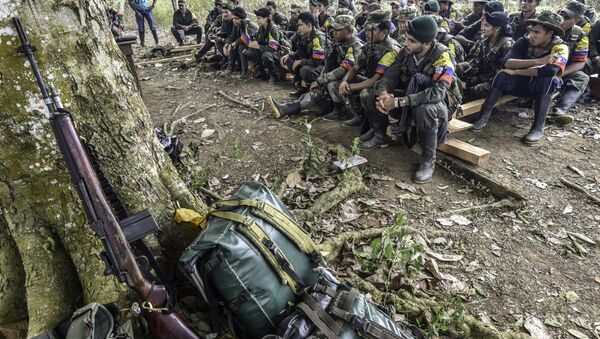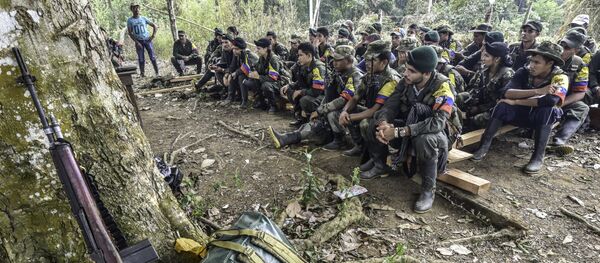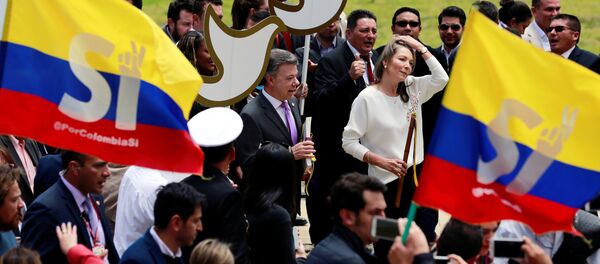The movement for peace, between the government of Colombia and FARC to end the 50-year war, began remobilizing following the surprising October 3 vote result that disavowed the work by the two parties to end the violence. After having been brought to a standstill by the skewed referendum, the peace movement has now sent a message in the country that, "The peace process has to be moved forward and there is no going back to war," Murillo said.
"The question is how much longer will both sides be able to stand on the sidelines as these negotiations continue," Murillo said.
The US has long dominated policy in Colombia. Following World War II, an expanding Washington influence in the region flooded the country with military resources, in exchange for rejecting left-wing or socialist political movements. Peace negotiations between the government and FARC were initiated only recently, but failed on the first attempts, as the country's military, flush with weapons from the West, could not be convinced to stand down. US foreign policy now claims that outreach by Washington in Colombia brought FARC to the negotiating table. Murillo offered that, "Looking at that as a success is an ultimate cynicism."
Earlier, when Santos was defense minister of Colombia, he oversaw the so-called False Positive Scandal, in which Colombian soldiers kidnapped poor young peasant males, took them to villages and killed them, then presented them as FARC guerillas. Some 3500-4000 young men were killed this way. The country's army then offered the murdered men as proof that it was ‘successfully' combating guerrillas. The Nobel committee made no mention of the mass killings.
"Santos did not even need to do the referendum. That was a strategic mistake," Murillo asserted. There is uncertainty if there will be another referendum as negotiations go forward, according to the professor.




